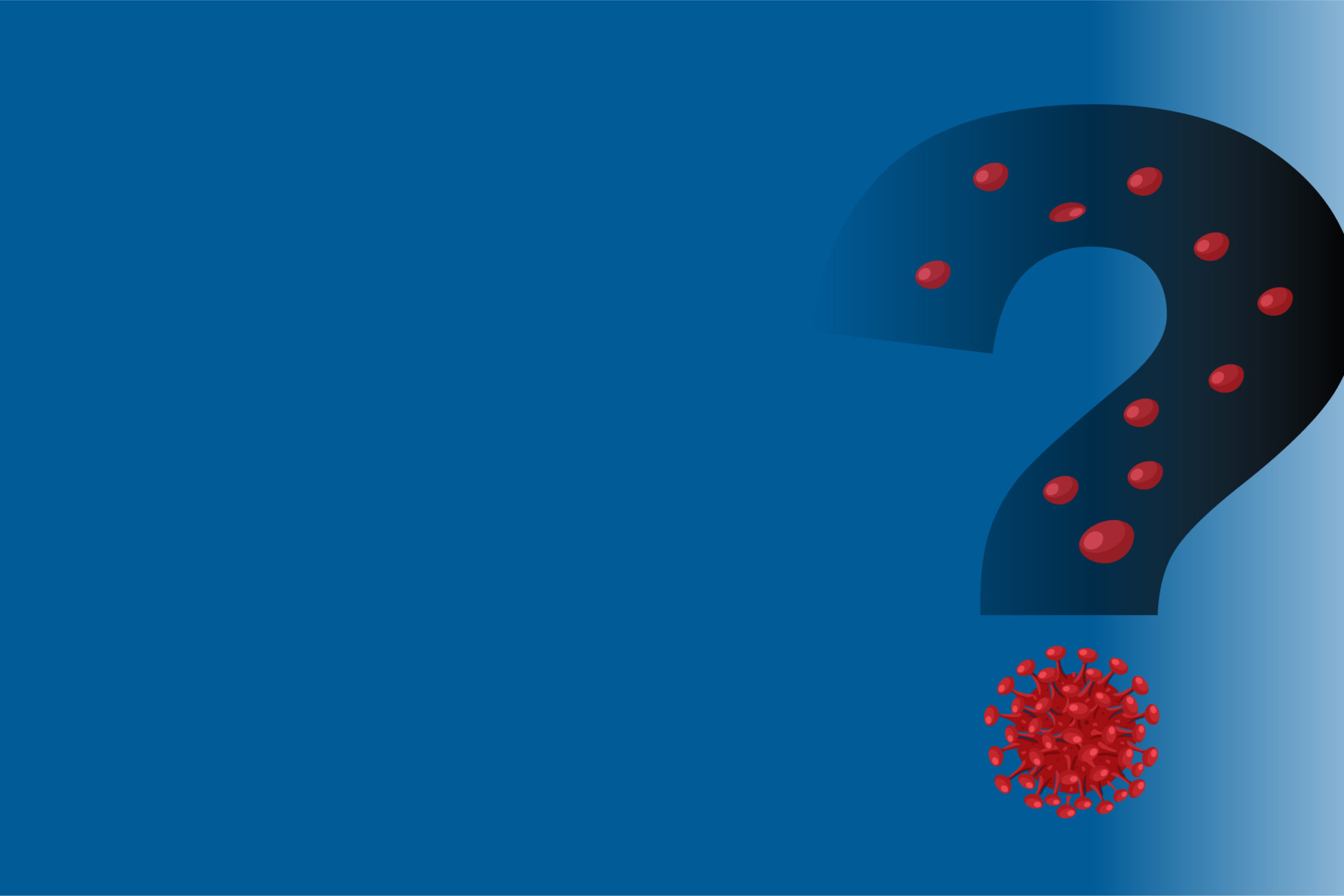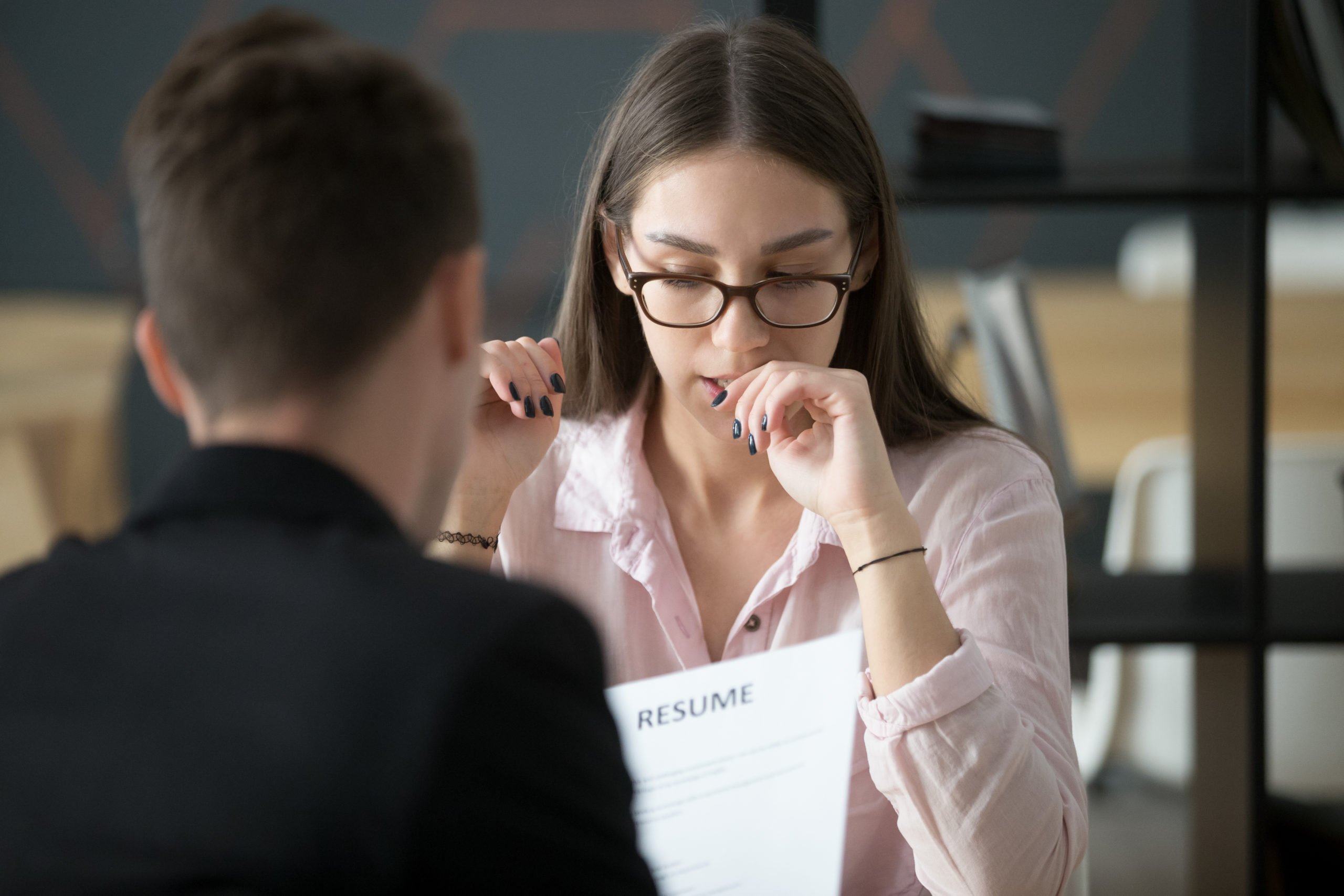What is COVID-19?
COVID-19 is a new strain of coronaviruses that can transfer from animals
to humans. The virus causes
respiratory disease, and it is called
"SARS-COV-2" and the disease it causes called " Coronavirus
disease 2019" (Abbreviated COVID-19).
There is a large family of coronaviruses that are common in many
different species of animals, including bats, cats, camels, and cattle. Coronaviruses
are named for the crown-like spikes on their surface. There are four
main sub-groupings of coronaviruses, known as alpha, beta, gamma, and delta.
WHO has declared COVID-19 as a global
pandemic on 12th March 2020. Coronavirus's first case was detected on 13th
December 2019, and the COVID-19 epicenter was in Wuhan, Hubei
province, China.
In the past, there were other types of human coronaviruses:
- SARS-associated
Coronavirus (SARS-CoV), first detected in
Asia in February 2003. There are not any newly detected cases of SARS since
2004.
- Middle
East Respiratory Syndrome Coronavirus (MERS-CoV), The first case was reported in Jordan in April 2012. Later, it was
detected in Saudi Arabia in September 2012. The largest known outbreak of MERS
was in the Republic of Korea in 2015.
What is the difference between COVID-19 and influenza?
- Influenza
has a shorter median incubation period (the time from infection to appearance
of symptoms) and a shorter serial interval (the time between successive cases)
than the COVID-19 virus.
- The
serial interval for the COVID-19 virus is estimated to be 5-6 days, while for the
influenza virus, the serial interval is 3 days, which means that influenza can
spread faster than COVID-19.
- The
reproductive number – the number of secondary infections generated from one
infected individual – is higher in COVID-19 than for influenza.
- Children
are essential drivers of influenza virus transmission in the community. For the
COVID-19 virus, children are less affected than adults and that clinical attack
rates in the 0-19 age group are low. Moreover, Studies in China suggest that children
are infected from adults, rather than vice versa.
- Symptoms
for the two viruses are similar, but for COVID-19, data to date suggest that
80% of infections are mild or asymptomatic, 15% are severe infection, requiring
oxygen, and 5% are critical infections, requiring ventilation. That is higher
compared to influenza infections.
- Mortality
for COVID-19 is higher than for influenza.
- What is
the difference between MERS and COVID-19?
Middle East Respiratory Syndrome (MERS) and COVID-19 are different types
of diseases caused by viruses belong to a large family of Coronavirus. They are
different in the diseases they cause, but they are related to each other
genetically.
Symptoms
- What are
the symptoms of COVID-19?
People affected by COVID-19 have a wide range of symptoms ranging from
mild
symptoms to severe illness.
In some cases, the disease may lead to death. These include older
people and individuals with a weak immune system (underlying chronic
health conditions such as Diabetes, lung ailments, and cancer).
Symptoms may appear 2-14 days after exposure to the virus.
The most common symptoms are:
- Fever
- Cough
- Sore
throat
- Runny or
stuffy nose
- Shortness
of breath
- aches and
pains
- Diarrhoea
Note: Not all symptoms can
be seen in a person suspected to be infected by COVID-19.
Not everyone with cold or upper respiratory symptoms needs to be tested
for COVID-19.
Most people (about 80%) recover from the disease without needing special
treatment.
Emergency warning signs are:
- Breathlessness
- Persistent
chest pain
- Bluish
lips or face
- Drowsiness
or any new onset change in mental status.
If you notice any symptoms mentioned above, visit the nearest medical
Centre or hospital for further guidance and medical care.
Severe illness symptoms can lead to acute respiratory distress syndrome
(ARDS) and can lead to death.
- How long
does it take for symptoms to appear?
Symptoms may appear
2-14 days after exposure to the virus. Yet,
in some cases, such as younger people, symptoms may be as delayed as 27-28
days.
- Can
symptoms of COVID-19 present even after 14 days?
Yes, in some cases, such as
younger people, symptoms may be as
delayed as 27-28 days.
- Who is at
a higher risk of severe illness with COVID-19?
In some cases, the disease may lead to death. These include
older
adults and
individuals with a weak immune system (underlying chronic
health conditions such as Diabetes, lung ailments, and cancer).
Spread
Person to person spread: Through
respiratory droplets produced when an infected person coughs or sneezes or
through contaminated hands.
Between people who are in close contact with one another (within about 6
feet).
A person can also catch COVID-19 if he breathes in droplets from a
person with COVID-19 who coughs out or exhales droplets.
Contaminated Surfaces or objects: The
person can get COVID-19 by touching the surface that has the virus on it and
then touching their mouth or nose.
- Why does
the Coronavirus spread relatively easily between people?
Because it spreads mainly from person to person contact, so if an
infected person coughs or sneezes, the other person can easily be infected
through the droplets that spread in the place.
These droplets are heavy, and they fall quickly to the surface/ground
below. If the person touches a surface with the virus on it, then he touches
his mouth or nose, he can get easily infected.
- Can
someone spread the virus without being sick?
Infected people are thought to be most contagious when they have the
symptoms. However, in some cases, some people may spread the disease before
showing any symptoms, but this is not the main way to spread the virus.
- What is
the close contact?
The close contact has been defined as:
- Being
within about 6 feet (2 meters) of COVID-19 case for a long period.
- Close
contact resulted from caring, visiting, living with, or sharing a health care
area with a COVID-19 case.
- Having
direct contact with infectious secretions of COVID-19 Case.
- If
contact happens without wearing recommended personal protective equipment
(PPE), including gowns, gloves, certified masks, and eye protectors.
- How long
does the virus survive on surfaces?
Regarding COVID-19, there are no certain studies to confirm how long
does COVID-19 stays on surfaces, but studies suggest that other coronaviruses
persist on surfaces for a few hours or up to several days. It depends on
several factors, including humidity, temperature, and surface type.
- If a
colleague gets infected, what should be done?
Suggest the colleague visit the nearest health center to get tested for
COVID-19 and to observe self-isolation.
If you are in close contact with the infected person, observe home
quarantine, and mentor your symptoms. Seek medical help if your symptoms
developed.
- Can I get
infected with COVID-19 from touching food, food packaging, or food contact
surfaces with Coronavirus on it?
There is currently no evidence of human food packaging being associated
with the transmission of the Coronavirus that causes COVID-19. Like other
viruses, it is possible that Coronavirus can survive on surfaces or objects.
So, following food safety steps, clean, separate, and cook, is critical.
Prevention and protection
- What does
social distancing mean?
According to public health officials, social distancing, "physical
distancing," is increasing the physical space between people to avoid spreading
illness. This includes many different measures, including staying home, keeping
6 feet away, avoid closing public places, canceling events and large
gatherings, and restricting people's visits to your home.
- What
steps should I take to prevent COVID-19?
Prevention is better than cure.
So you have to prevent the illness by doing the following:
- Wear a
face mask to cover your nose and mouth while stepping out of the house.
- Wash your
hands with soap and water for at least 20 seconds or use a hand sanitizer that
contains at least 60% Alcohol.
- Maintain
at least 1 meter (3 feet) distance between yourself and anyone who is coughing
or sneezing.
- Cover
your mouth and nose with your bent elbow or tissue when you cough or sneeze.
Then dispose of the used tissue immediately.
- Avoid
touching your eyes, nose, or mouth with unwashed hands.
- Practice
safe greetings. Avoid physical contact (nose-to-nose greeting, handshaking, or
hugging).
- Avoid
contact with animals (alive or dead).
- Take
enough rest and take a large number of fluids.
- Are hand
sanitizers better than soap to kill the virus?
Both washing hands with soap and using hand sanitizers are highly
effective ways of fighting the Coronavirus. Wash your hands with soap and water
for at least 20 seconds. If soap and water are not available, use alcohol-based
hand sanitizer with at least 60% alcohol, covering all your hands and rubbing
them together until they get dry.
- What is
the difference between isolation and quarantine?
Isolation and quarantine are ways used to protect the public by
preventing exposure to people who have or may have a contagious disease.
Isolation: separates sick
people with a contagious disease from people who are not sick.
Quarantine: separates and
restricts the movement of people who were exposed to a contagious disease to
see if they become sick.
- What is
the duration of the home quarantine?
The duration of home quarantine is for 14 days from contact with a
confirmed case. However, this period may vary from case to case depending on
the health of the person. It may continue until the risk of secondary
transmission to others become low.
- Can home
quarantine end up earlier if a suspect case turns out negative on laboratory
testing?
Yes, if a suspect case turns out negative on laboratory testing, home
quarantine can end up early.
- Can home
quarantine be more than 14 days?
The home quarantine can be up to 28 days in some high-risk cases,
including:
- Contact
with a confirmed COVID-19 case.
- Visiting
hospitals where COVID-19 cases being treated.
- Being in
places where COVID-19 transmission being reported.
- Having
direct contact with infectious secretions of COVID-19 case without wearing
recommended protective equipment.
- I am on
home quarantine, and I notice symptoms appearing what I should do?
Contact your doctor or the nearest
hospital or medical Centre immediately because you may need further care and
management.
- I am on
house isolation, and I notice my symptoms worsening, what should I do?
Contact your doctor or the nearest
hospital or medical Centre immediately for further care and management.
- Who can't
be home quarantined for COVID-19?
Patients with severe illness symptoms of breathlessness, persistent
chest pain, bluish lips or face, abnormal pulse or blood pressure readings or
people with chronic diseases will need hospital care, and they can't be
quarantined at home.
- What to
do if I am sick with COVID-19?
- Practice
self-isolation.
- Get
immediate medical care.
- Stay in a
well-ventilated single room with an attached/separate toilet.
- Stay away
from older people, pregnant women, children, and persons with co-morbidities.
- Avoid
public areas
- Avoid
public transportation
- Work from
home
- Wear a
face mask all the time
- If
another person has to be with you in the same place, keep a distance of at
least 1 m (3 feet) away from him.
- If I am
healthy, Do I still have to wear a facemask?
Yes, as per new guidelines issued by the government of the UAE, the
general public has to wear face masks and gloves while stepping out of the
house for any reason, or you will get fined.
- How
frequently should I replace my facemask?
A medical face mask is effective for 8 hours. After that time, you have
to change it.
If it gets wet in between, it has to be changed immediately.
- How to
wear a facemask correctly?
- Before
putting on the mask, rub your hand with water and soap or use an Alcohol-based
hand sanitizer.
- Cover
your mouth and nose and make sure there are no gaps between your face and the
mask.
- Avoid
touching the mask while using it; if you do, clean your hands with
alcohol-based hand sanitizer or rub your hands with soap and water.
- Replace
the mask with a new one as soon as it is wet and don't re-use single-use masks.
- To remove
the face mask: remove it from behind, discard immediately in a closed bin, and
clean your hands with soap and water or an alcohol-based sanitizer.
- What are the instructions for the family members of persons being home quarantined?
- Only one family member should be responsible for taking care of such an affected person.
- Avoid direct contact.
- Use disposable gloves when cleaning the surfaces or handling solid linen.
- Clean and disinfect frequently touched surfaces daily with 1% Sodium Hypochlorite Solution.
- Wash hands with soap and water for at least 20 seconds after removing the gloves.
- Visitors are not allowed.
- All the person's close contacts will be home quarantined for 14 days or more until his case turned out to be negative on lab testing.
- Why
isolation is the best way of preventing Corona spread?
Avoid being exposed to this virus is the best way to prevent illness.
Thus, Self-isolation is a useful precautionary measure to help others around
you from contracting COVID-19. Try to avoid close contact with others as much
as possible.
- How do I
know if I had COVID-19 or regular flu?
COVID-19 and flu have common symptoms that can progress and become
life-threatening in both cases.
Doctors suspect Coronavirus if:
- The
patient has respiratory symptoms.
- The
patient recently traveled to countries where there is a spread of COVID-19.
- The
patient has direct contact with a suspected COVID-19 case.
- There is
a community spread of COVID-19 in the patient's area.
Investigations
- Is there
a test for COVID-19?
Yes, there is a laboratory test for
COVID-19.
- What is
the CDC 2019-nCoV Real-Time- Rt-PCR Diagnostic Panel?
This is the test designed to detect the novel Coronavirus in respiratory
specimens, such as nasal or oral swabs.
- Who
should be tested for the Coronavirus?
- All symptomatic
individuals who have undertaken international travel in the last 14 days.
- All symptomatic
contacts of laboratory-confirmed cases.
- All symptomatic
health care workers.
- All symptomatic
direct contacts of confirmed cases
- All those
who live in the same household with confirmed cases or health workers who
examined a confirmed case without wearing protective equipment.
- What does
it mean if I have a positive Coronavirus test result?
It means that you have infected with Coronavirus, so you will be placed
in isolation to prevent spreading the virus to others.
- What does
it mean if I have a negative test result?
It means that Coronavirus was not found in your sample. While the negative
test means you don't have Coronavirus, your doctor will consider the test
result together with all other aspects of your medical history, in case the
test result may be a false negative.
- Can a
person test negative and then test positive for COVID-19?
It is possible to have a false negative result in some people with
COVID-19 infection in the early stages before the symptoms appear, meaning you
might have an infection with Coronavirus even though the test is positive.
If COVID-19 is still suspected in your case, your health care provider
will consider pre-testing.
Treatment
- Is there
a treatment for COVID-19?
As there is no specific treatment for the virus to date, the treatment
of COVID-19 depends on enhancing the immunity level of patients, treating the
symptoms, and easing complications.
- Is there
a vaccine available to prevent COVID-19?
Till now, there is no vaccine available to prevent COVID-19.
- Am I
protected against COVID-19 if I had the influenza vaccine this year?
COVID-19 and influenza are entirely two
different viruses, and the seasonal influenza vaccine will not protect you
against COVID-19.
- Are
antibiotics effective in treating or preventing COVID-19?
No, Antibiotics don't work against viruses; they only work on bacterial
infections. A virus, not bacteria, cause COVID-19.
- Are there
any natural health products that can treat or prevent COVID-19?
Until this time, there are no authorized natural health products to
treat or protect COVID-19.
Relapse
- Can a
person who has had Coronavirus get infected again?
However, there is no crucial answer to this question, and most people
may develop at least short immunity to the specific Coronavirus that causes
COVID-19.
Animals Related
- Can
humans be infected with the COVID-19 from an animal source?
While there is current research that links COVID-19 to certain types of
bats, there is no evidence that pets like cats or dogs pose a risk of infection
to humans. As a precautionary measure, avoid direct contact with animals or
surfaces in contact with animals. Also, avoid handling raw meat, milk, or
animal products with care to prevent contamination of uncooked food and avoid
uncooked products that come from animals.
- Can I
catch COVID-19 from my pet?
There is no evidence that pets like cats
or dogs pose a risk of infection to humans. As a precautionary measure, avoid
direct contact with animals or surfaces in contact with animals and wash your
hands after handling animals or animal waste.
- Should I
avoid contact with animals if I am sick with COVID-19?
Yes, it is still recommended that people with COVID-19 limit contact
with animals until more information is known about the virus. If it is a must
to care for the pets by yourself, wear a mask and wash your hand before and
after handling the animals. Avoid petting, being kissed or licked, snuggling,
and sharing food.
- Can eating
chicken or eggs cause COVID-19?
There is no evidence; currently, that Coronavirus spread through poultry
products. Yet, you have to follow the food safety procedures and avoid uncooked
meat.
- Should
non-vegetarian food be avoided?
There is no evidence that non-vegetarian food should be avoided, but you
have to follow the food safety procedures: Separate, clean, and cook.
Children Related
- What is
the risk of my child becoming sick with COVID-19?
Depending on available studies as of today, children don't appear to be
at higher risk for COVID-19 than adults. Most cases are for adults compared to
infants.
- Should
children wear masks?
As per new guidelines issued by the UAE government, everyone should wear
masks while stepping out of the house for any purpose to prevent the spread of
COVID-19 and maintain public health.
- Are the
symptoms of COVID-19 different in children than in adults?
No, Symptoms for children and adults are
the same. The most prominent symptoms for children are cold-like symptoms,
including fever, runny nose, and cough. Generally, children with confirmed
COVID-19 have presented with mild symptoms.
- Can I
send my children to school?
As per the advisory issued by the government of UAE and the Ministry of
Education, closure of all educational establishments (Schools, Universities) shall
be in force until further notice. The latest updates can be found on https://www.moe.gov.ae/En/Pages/Home.aspx.
- How can
students be protected from Coronavirus?
To protect students, several procedures have been followed:
- Closure
of all educational establishments to maintain social distancing.
- Cancelling
all the activities (Marathons, swimming, theatres).
- The
government advises all the students to stay at home.
- Online
education.
- Exams postponed.
- My
children would contract the infection if they touched a floor cleaned by
Dettol?
As per the current guidelines, cleaning, and daily disinfecting surfaces
with 1% Sodium Hypochlorite Solution offers protection from Novel Coronavirus.
The best way to avoid being infected is to avoid touching the
contaminated surfaces and washing hands with water and soap frequently.
Pregnancy-Related
- Is
COVID-19 severe in pregnancy?
It is always important for pregnant women to keep themselves protected
from illnesses. There is no evidence until now that pregnant women have a higher
chance of getting infected with COVID-19 than ordinary people.
- Can
COVID-19 be passed from the pregnant woman to the new-born?
There is still no evidence if a pregnant
woman with COVID-19 can pass the virus to her baby during pregnancy or
delivery. To date, the virus has not been found in samples of amniotic fluid or
breastmilk.
- If a
pregnant woman has COVID-19 during pregnancy, will it hurt the baby?
There have been a small number of reported problems with pregnancy or
delivery (e.g., preterm birth) in babies born to mothers who have COVID-19.
However, there is no evidence till now that any problems posed to infants of
pregnant women who have COVID-19.
- What
precautions should pregnant women take?
There is no evidence until now that pregnant women have a higher chance
of getting infected with COVID-19 than ordinary people. Generally, they have to
protect themselves by practicing social distancing.
Elderly Related
- Why is
Coronavirus more threatening to older people and mostly spares children?
In the elderly, the disease represents a severe form of illness that
leads to death. This is likely resulting from the presence of other diseases, a
weaker immune system, or worse overall health, including suffering from
Diabetes, Cancer, etc.
However, the most prominent symptoms for children are cold-like
symptoms, including fever, runny nose, and cough. Generally, children with
confirmed COVID-19 have presented with mild symptoms.
- What can
we do to protect older adults (people more than 60 years of age)?
Follow protective measure:
- Observe strict
social distancing (with at least 1 meter (3 feet)) and avoid public places,
social gatherings, and non-essential travels.
- Wash
hands, frequently, with soap and water for at least 20 seconds, especially
after being in public places, or after blowing your nose, coughing, or sneezing
and use Alcohol-based hand sanitizer with 60% alcohol if there is no water and
soap.
- Avoid
touching eyes, nose, and mouth with unwashed hands.
- Avoid
close contact with infected people.
- Practice
safe greetings. Avoid physical contact (handshakes, hugging).
Special Conditions (Asthma)
- Should
people with Asthma wear a mask?
As per new guidelines issued by the UAE
government, everyone should wear masks while stepping out of the house for any
purpose to prevent the spread of COVID-19 and maintain public health.
In addition to wearing the mask, do the
following:
- Practice
social distancing.
- Wash your
hands with water and soap for 20 seconds. If water and soap are not available,
clean your hand with an alcohol-based hand sanitizer that contains at least 60%
Alcohol.
- Don't
touch your mouth, nose, and eyes with unwashed hands.
- Avoid
people who are coughing, sneezing, or having cold symptoms.
- Get the
seasonal influenza vaccine, if you have not.
- Make sure
you get your medicine and get your Asthma under the best control.
Special Conditions (Heart)
- I have a
heart-related problem, am I more prone to catching Corona Virus?
Results to date suggest that people with a heart-related problem appear
to have a higher risk of getting infected when exposed to viruses due to their
weak immune system and long-term medical condition.
Funerals
- Am I at
risk if I go to a funeral or visitation service for someone who dies of
COVID-19?
There is currently no confirmed risk of being in the same room with a
person who died of COVID-19. However, People should avoid touching the body of
the deceased without personal protective equipment.
- Am I at
risk if I touch someone who died of COVID-19 after he has passed away?
Kissing, hugging, bathing, etc. of the dead body is not allowed. The
personal handling of the body of the deceased person should follow standard
precautions of wearing personal protective equipment.
- Can I
follow the religious practices of washing the body of the deceased?
As per the directives issued by WHO, the bathing of the body of the deceased
affected by COVID-19 is not allowed.
- Can I
follow the religious method of burial for a person who dies of COVID-19?
The body of the deceased has to be adequately packed in a body bag and
should be disposed of under controlled conditions.
Travel
- I've
recently traveled to an area with sustained community transmission of COVID-19
and don't feel sick, what should I do?
- Home
Quarantine yourself
- Monitor
yourself for symptoms
- If you
develop symptoms within 14 days of travel to the affected area, contact the
nearest hospital.
- I have a
trip planned (domestic or international), should I still go?
"Don't travel" is highly recommended under the current
conditions. You can check with the appointed authorities for more information.
- I went to
the underground station today. Am I safe?
Avoid all non-essential commuting. The best way to avoid the virus is to
practice social-distancing or self-quarantine.
- I am
traveling within the United Arab Emirates, am I at increased risk of catching
the virus?
"Don't travel" is highly
recommended under the current conditions to curb the spread of COVID-19 and
reduce opportunities for virus transmission.
General Questions
- What is
the mortality rate for Corona Virus?
As per the official website of WHO, there
are 264K deaths.
- Is it
safe to visit hospitals with COVID-19 patients?
It is safe to visit the hospitals if you
have an acute care need. Follow updated guidelines for visitors and caregivers
set by the local health authorities.
- Can
wearing rubber gloves keep me safe from COVID-19?
If you touch your face with contaminated gloves, you may get infected.
The best practice is to wash your hands with water and soap frequently.
- Can disinfectant sprays or wipes be used on
my skin to prevent the spread of COVID-19?
No, don't use disinfectant sprays or wipes to be used on your skin
because they may cause skin irritation. They are intended for use on hard,
non-porous surfaces.
- I had
contact with someone who traveled to an area with sustained community
transmission of COVID-19. Should I be worried?
Monitor yourself for symptoms and contact your doctor if you feel sick.
- Should I
accept packages from China?
Yes. The likelihood of an infected person contaminating commercial goods
is low, and the risk of catching COVID-19 from a package that has been moved,
traveled, and exposed to different conditions is also low.
- Will warm
weather stop the outbreak of COVID-19?
Some viruses, like the cold and flu, spread more when the weather is colder.
At this time, there is no evidence that the spread of COVID-19 will decrease
when the weather becomes warm.
- Am I at
risk of getting COVID-19 from a mosquito bite?
At this time, there is no evidence that the new Corona Virus can be
transmitted from a mosquito bite.
- Are hand
dryers effective in killing the new Coronavirus?
No, hand dryers are not effective in killing the new Coronavirus.
- Can an
ultraviolet disinfection lamp kill the new Coronavirus?
UV lamps shouldn't be used to sterilize hands, or other areas of the
skin as UV radiation can cause skin irritation.
- How
effective are thermal scanners in detecting people affected with Coronavirus?
They are useful in detecting people who developed a fever because of the
infection of the Coronavirus.
However, they can't detect people who are not infected but are not yet
sick with a fever. This is because it takes between 2 and 14 days before people
who are affected become sick and develop a fever.
- Can
eating garlic help prevent infection with the new Coronavirus?
Eating garlic is healthy because it has some antimicrobial properties,
but no evidence eating garlic has prevented people from getting infected by a coronavirus.
- Will I
die if I get COVID-19?
No. Most people have mild symptoms and recover from the disease in 2
weeks with supportive medical care.
- How can I
clean or disinfect my phone to protect myself from the new Coronavirus?
Phone cleaning tips:
- Unplug
the phone before you clean it.
- Use only
soft, microfiber cloth.
- Don't
spray the phone directly with disinfectants.
- Avoid
bleaches or other cleaning products. Use only spray disinfectant that contains
70% isopropyl alcohol.
- Even if
your phone is waterproof, don't wash it with soap and water under the tap.
- Remember
to clean your phone case as well.
- Remember
to clean your hands after cleaning the phone.
- Will a
cough droplet that falls on one's clothes infect someone?
If you touch the cough droplet of an infected person and then touch your
mouth, nose, or eyes, you may get sick.
- We have
servants coming to our house, are we at higher risk of getting corona
infection?
The best way to avoid being exposed to this virus is to maintain social
distancing and limit visitors to come to your house.
- Can we go
to an open market to buy groceries to avoid coronavirus infection?
- Try to go during off-peak hours.
- While being there, maintain a 1 meter (3 feet) distance between you and
other people.
- Wash your hands with soap and water for 20 seconds, especially after
being in public places or use a hand sanitizer that contains at least 60%
alcohol.
- Avoid touching your mouth, nose, and eye with unwashed hands.
- Practice safe greetings.
- Will
cleaning doorknobs keep the novel Coronavirus away?
It is useful, especially in public places, to practice routine cleaning
of high touch surfaces (counters, tabletops, doorknobs, keyboards, tablets)
daily with 1% Sodium Hypochlorite Solution.
Helpline and Medical Guidance
- Is there
an Emirati government helpline number for COVID-19?
Yes, you can call:
- Ministry
of Health & prevention: 80011111
- Medical
operations command center: 8001717
- Dubai
Health Authority: 800342
- Where can
I get medical advice regarding COVID-19?
Visit the Ministry of Health and Prevention
official website: https://www.mohap.gov.ae








 2022-11-08
2022-11-08
 2022-08-31
2022-08-31
 2022-07-10
2022-07-10
 2022-06-01
2022-06-01
 2021-12-30
2021-12-30